
Understanding Hair Loss: Causes, Symptoms, and Treatment Options
HAIR LOSS

Causes of Hair Loss
Hair loss and shedding happens to everyone. It is a normal part of our healthy renewal cycle. On an average we lose around 80 to 100 strands of hair each day. Our hair follicles go through natural periods of growth and shedding, and each hair shaft is replaced once this cycle is complete. When we tend to notice excess hair loss, it’s because our hair growth phase isn’t equal to the number of strands we’re losing. Unfortunately, this excess hair shedding can take a toll on our overall confidence.If you’re experiencing hair loss, thinning or shedding, at DNCC we have simple and transformative solutions that reverse hair loss and even regrow your hair.
Hereditary hair loss
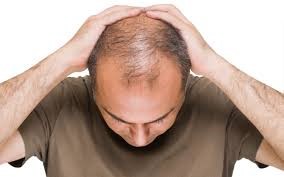
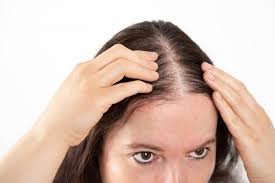
Hereditary hair loss is the most common cause of hair loss in most men and women. The medical term for hereditary hair loss is androgenic alopecia. It’s called male pattern hair loss in men and female pattern hair loss in women. When a man has hereditary hair loss, the first sign is often a receding hairline or a bald spot at the top of his head. In women, the first noticeable sign of hereditary hair loss is usually overall thinning or a widening parting in the middle.
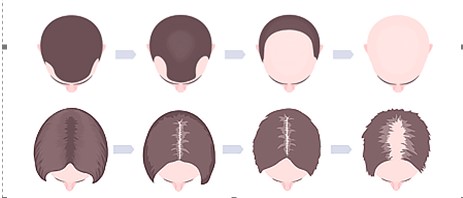
Age
As people advance with age, hair loss occurs naturally, because hair growth slows. At some point, hair follicles stop growing hair, which causes the hair on our scalp to thin. Hair also starts to lose its color and begin grey. A woman’s hairline naturally starts to recede.
Alopecia Areata
Alopecia areata is a disease that develops when the body’s immune system attacks hair follicles (what holds the hair in place), causing hair loss. You can lose hair anywhere on your body, including your scalp, inside your nose, and in your ears. Some people lose their eyelashes or eyebrows.
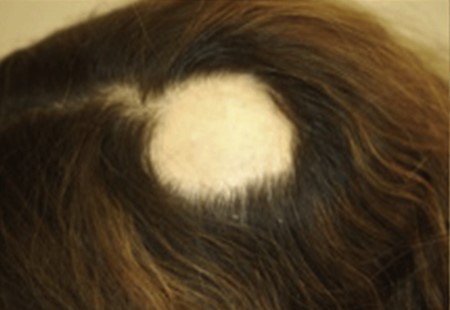
Cancer Treatment
For those undergoing chemotherapy for cancer or have radiation treatment to your head or neck, you may lose most of your hair within a few weeks of starting treatment. Hair usually regrows within months of finishing chemotherapy or radiation treatments. Medication by hair loss experts also can help hair grow back more quickly.

Stress, Illness, or Childbirth
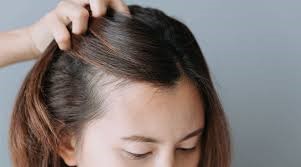
Hair loss can occur if you’re going through a stressful time in your life. A few months after giving birth, Hair loss can also occur if you’re recovering from an illness, or having an operation, or after childbirth. When the shedding stops, most people see their hair regain its normal fullness within 6 to 9 months.
Hair Styling Damage

If you color, perm, or use hair straighteners, hot rollers, or other heat styling tools frequently you could be damaging your hair. When using heat styling tools, it's important to use them properly to avoid damaging the hair. It's important to use a heat protectant product, not applying excessive heat, when using heat styling tools to minimize damage to your hair.
Ponytails or Hairstyle that pulls on your scalp

If you often wear your hair tightly pulled back, the continual pulling can lead to hair breakage over time and permanent hair loss. The medical name for this condition is traction alopecia.
Hormonal Imbalance
A common cause of this imbalance is polycystic ovary syndrome (PCOS). It is characterized by imbalances in reproductive hormones, particularly increased levels of androgens. This hormonal imbalance can cause hair thinning on the scalp and excess hair growth on the face and body.

Scalp Infection
A scalp infection can lead to scaly and sometimes inflamed areas on your scalp. Treatment typically involves addressing the underlying infection. This may include topical or oral medications, and medicated shampoos. In some cases, corticosteroid medications may be prescribed to reduce inflammation and promote healing.
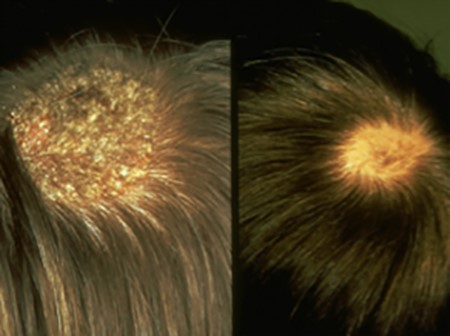
Medications
A possible side effect of some medications is hair loss. If you think a medication is causing your hair loss, ask the doctor who prescribed it if hair loss is a possible side effect. It’s essential that you do not stop taking the medication before talking with your doctor. Abruptly stopping some medications can cause serious health problems.

Scalp Psoriasis
Many people who have plaque psoriasis develop psoriasis on their scalp at some point. This can lead to hair loss. Hair tends to regrow once the scalp psoriasis clears, but this takes time.
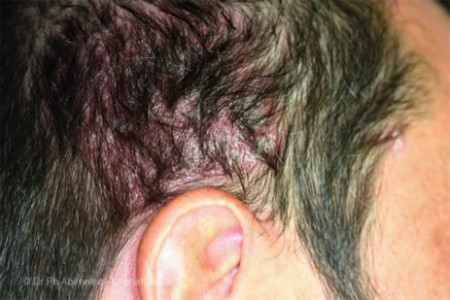
Pulling of Hair
The medical term for this is trichotillomania. Some people pull on their hair, often to relieve stress. They may be unaware that they’re pulling their hair. If the hair follicles are not yet destroyed, you need to stop pulling the hair to allow it to regrow.
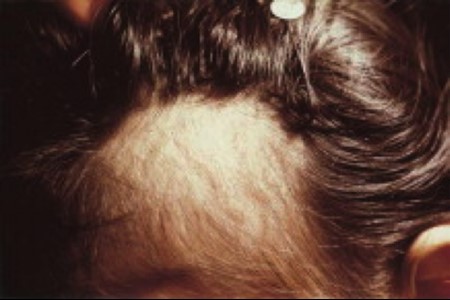
Scarring Alopecia
This condition develops when inflammation destroys hair follicles. Once destroyed, a hair follicle cannot grow hair. Diverse conditions can cause this. The medical name for this group of conditions is cicatricial alopecia. Catching this condition early can prevent further hair loss.
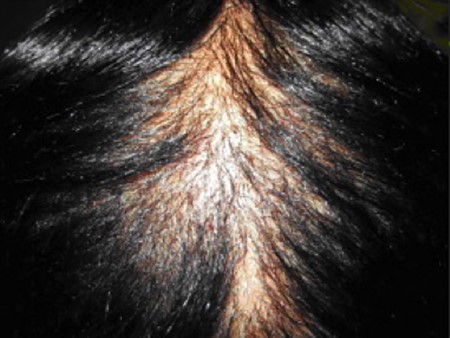
Thyroid Disease
If you have a problem with your thyroid, you may see thinning hair. Some people notice that their hair comes out in clumps when they brush it. Treating thyroid disease can reverse hair loss.
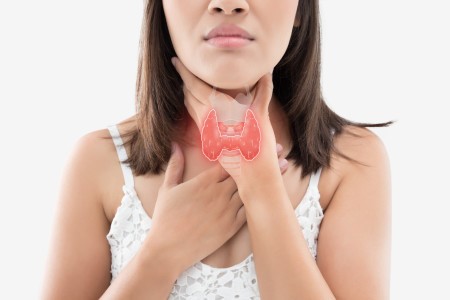
Nutrient Imbalance
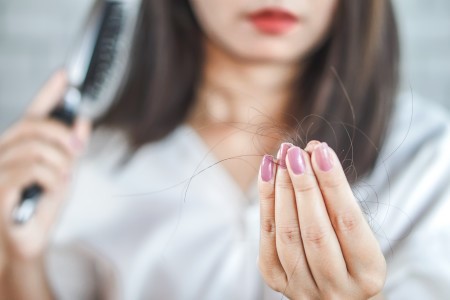
If you’re not eating a balanced and nutritious diet that includes iron, zinc, biotin, and vitamins A, C, D, and E it can result in noticeable hair loss. When your body gets enough of these essential nutrients, hair can regrow.
Hair Restoration Treatments
Hair restoration treatments can range from medications to surgical procedures, and even lifestyle changes. The most effective treatment for hair loss depends on the underlying cause and individual factors. It's essential to consult with hair loss experts or dermatologists to determine the most suitable treatment plan for you.
Platelet-Rich Plasma (PRP) Therapy
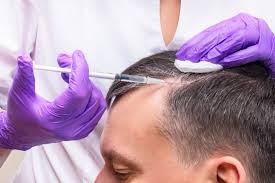
PRP hair is a treatment that stimulates your hair follicles, increases blood circulation in the scalp and promotes tissue healing. This unique therapy relies on your own blood’s growth factors for cell regeneration. The plasma and platelets in the blood are extracted and collected for the treatment which are then injected in the scalp for hair regeneration.
IPRF (Injectable Platelet-Rich Fibrin) Therapy
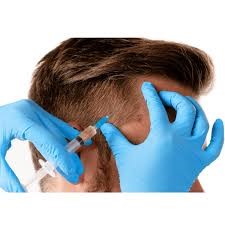
Injectable platelet rich fibrin or (iPRF) also harnesses the most powerful regenerative components of the patient’s own blood plasma which is enriched with: platelets, fibrin and stem cells which acts as a source of healing proteins, growth factors and regeneration matrix to stimulate healthy regrowth of hair.
Growth Factor Concentrate (GFC) Therapy
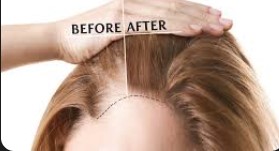
GFC is a relatively new procedure introduced to help people suffering from hair loss. It’s a more advanced version of PRP that offers greater results. This methodology is more advanced than the standard PRP therapy. Here, instead of platelets, growth factors in high concentration like PDGF, VEGF, EGF, and IGF-1 are extracted from the platelets and injected directly into the scalp. This procedure is totally safe and provides best results in regenerating hair growth.
Mesotherapy
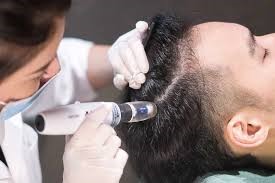
Mesotherapy is a non-surgical, cosmetic procedure of administering growth factors, vitamins & proteins in the scalp of patients suffering from hair fall. These substances are injected into the dermis, a layer of the skin. It helps in enhancing blood distribution, triggering cell metabolism and speeding up the revival of hair follicles. It has been found to be helpful in a lot of patients suffering from active hair fall.
Microneedling
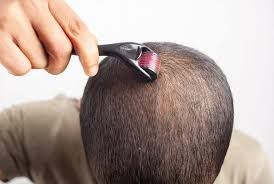
In Microneedling, a device with thin needles is rolled over the scalp creating tiny micro-injuries. Your scalp responds by sending more blood flow to the area and rebuilding its collagen to heal the wounds. The extra blood flow, collagen and wound-healing process can help your follicles produce thicker hair. Microneedling can also help topical medications like minoxidil (Rogaine®) penetrate your scalp for better results.
Medications for Hair Loss

Minoxidil (Rogaine): This is one of the most well-known medications for hair loss. It's available over the counter in liquid or foam form. Minoxidil is believed to work by increasing blood flow to the scalp and promoting hair follicle growth.
Finasteride (Propecia): This medication is available in pill form and is used to treat male pattern baldness. It works by inhibiting the conversion of testosterone to dihydrotestosterone (DHT), which is thought to be a key factor in hair loss.
Dutasteride (Avodart): Similar to finasteride, dutasteride also inhibits the conversion of testosterone to DHT. It's sometimes used off-label for treating hair loss, but it's not FDA-approved for this purpose.
Corticosteroids: Corticosteroid injections or topical treatments may be used to treat certain types of hair loss, such as alopecia areata, by reducing inflammation and suppressing the immune response that attacks hair follicles.
Ketoconazole: This is an antifungal medication often used to treat dandruff. Some studies suggest that ketoconazole shampoo may also help with hair loss by reducing scalp inflammation and blocking DHT production.
Laser Cap

A laser cap is lined from inside with low-level laser technology that stimulates dormant hair follicles to promote regrowth. The light works to target regions of the scalp experiencing balding and activates nutrients and oxygen to grow healthy, thick hair again. This FDA-approved treatment is noninvasive and easy to use. Just place the cap on your head and wear it for 20-30 minutes every other day.
Hair Transplant Surgery
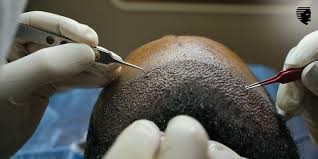
A hair transplant is a surgical procedure designed to treat hair loss or baldness. It involves extracting hair follicles from a specific donor area, typically the back or sides of your scalp, before implanting them into any areas of the scalp where there is balding or thinning. The transplanted hair follicles then continue to grow in this new location. A good hair transplant can be a life-changing experience for individuals with hair loss and baldness.
With over 85,000 satisfied patients, we at DNCC harness cutting-edge technology and treatments to reverse hair loss and regain your confidence and good looks. If you’re worried about your hair loss- we’d love to help. Call: (+91) 741 496 9509 to schedule your free consultation.